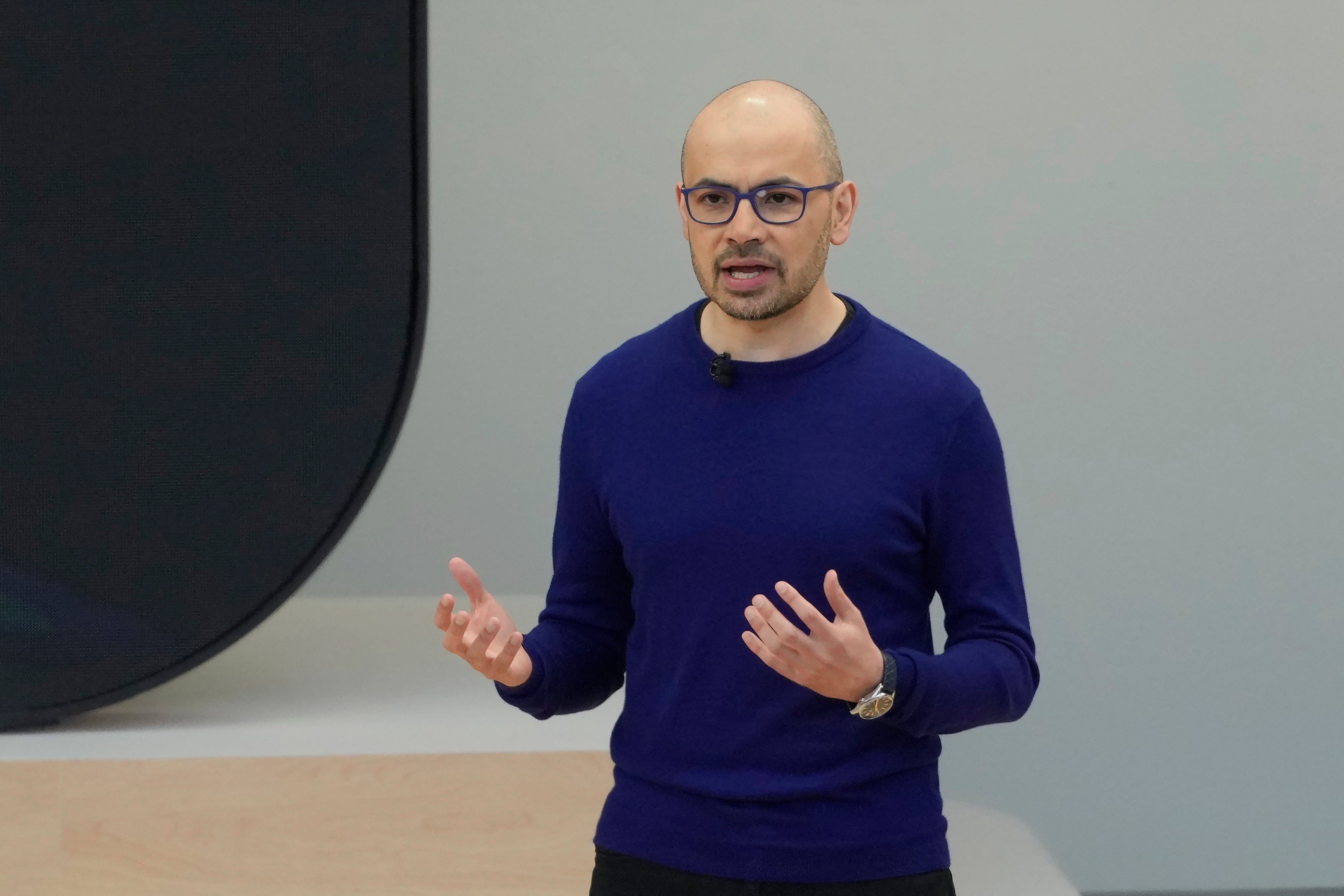Nobel Prize awarded to Google DeepMind researchers who pioneered new AI system
‘AlphaFold’ tool has the potential to transform our understanding of the building blocks of life

Your support helps us to tell the story
From reproductive rights to climate change to Big Tech, The Independent is on the ground when the story is developing. Whether it's investigating the financials of Elon Musk's pro-Trump PAC or producing our latest documentary, 'The A Word', which shines a light on the American women fighting for reproductive rights, we know how important it is to parse out the facts from the messaging.
At such a critical moment in US history, we need reporters on the ground. Your donation allows us to keep sending journalists to speak to both sides of the story.
The Independent is trusted by Americans across the entire political spectrum. And unlike many other quality news outlets, we choose not to lock Americans out of our reporting and analysis with paywalls. We believe quality journalism should be available to everyone, paid for by those who can afford it.
Your support makes all the difference.AI researchers have been awarded the Nobel Prize in Chemistry for their work on proteins.
Sir Demis Hassabis, who is the chief executive and and co-founder of London-based artificial intelligence start-up Google DeepMind, received the honour alongside John Jumper, a senior research scientist at the company, and David Baker, of the University of Washington.
The win for the DeepMind researchers represents the second Nobel Prize in a row to be awarded for AI work. The day before, machine learning researchers were given the physics prize for their work on early systems that led to today’s artificial intelligence.
In 2020, Sir Demis and Dr Jumper presented an AI model called AlphaFold2.
With its help, they have been able to predict the structure of virtually all the 200 million proteins that researchers have identified.
Since their breakthrough, AlphaFold2 has been used by more than 2 million people from 190 countries.
Sir Demis was born in London in 1976 and received his PhD in from University College London.
The other half of the prize was awarded to Dr Baker “for computational protein design”. Dr Baker is a professor at the University of Washington, in Seattle, and learned how to master life’s building blocks and create entirely new proteins, the award-giving body said.
“One of the discoveries being recognised this year concerns the construction of spectacular proteins,” the academy said in a statement. “The other is about fulfilling a 50-year-old dream: predicting protein structures from their amino acid sequences.”
The prize, widely regarded as among the most prestigious in the scientific world, is worth 11 million Swedish crowns (£809,000).
“I’m really excited about all the ways in which protein design makes the world a better place in health, medicine and really, outside technology,” Dr Baker said by phone to the press conference announcing the prize.
In 2003, Dr Baker was able to use amino acids, often described as life’s building blocks, to design a new protein that was unlike any existing one, the academy said.
That opened the door to the rapid creation of different proteins for use in areas such as pharmaceuticals, vaccines, nanomaterials and even tiny sensors.
“He developed computational tools that now enable scientists to design spectacular new proteins with entirely novel shapes and functions, opening endless possibilities for the greatest benefits to humankind,” Heiner Linke, chair of the Nobel Committee for Chemistry, said of Dr Baker’s contribution.
Additional reporting by agencies
Join our commenting forum
Join thought-provoking conversations, follow other Independent readers and see their replies
Comments